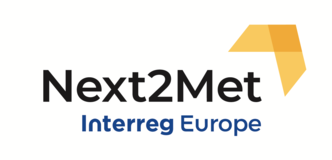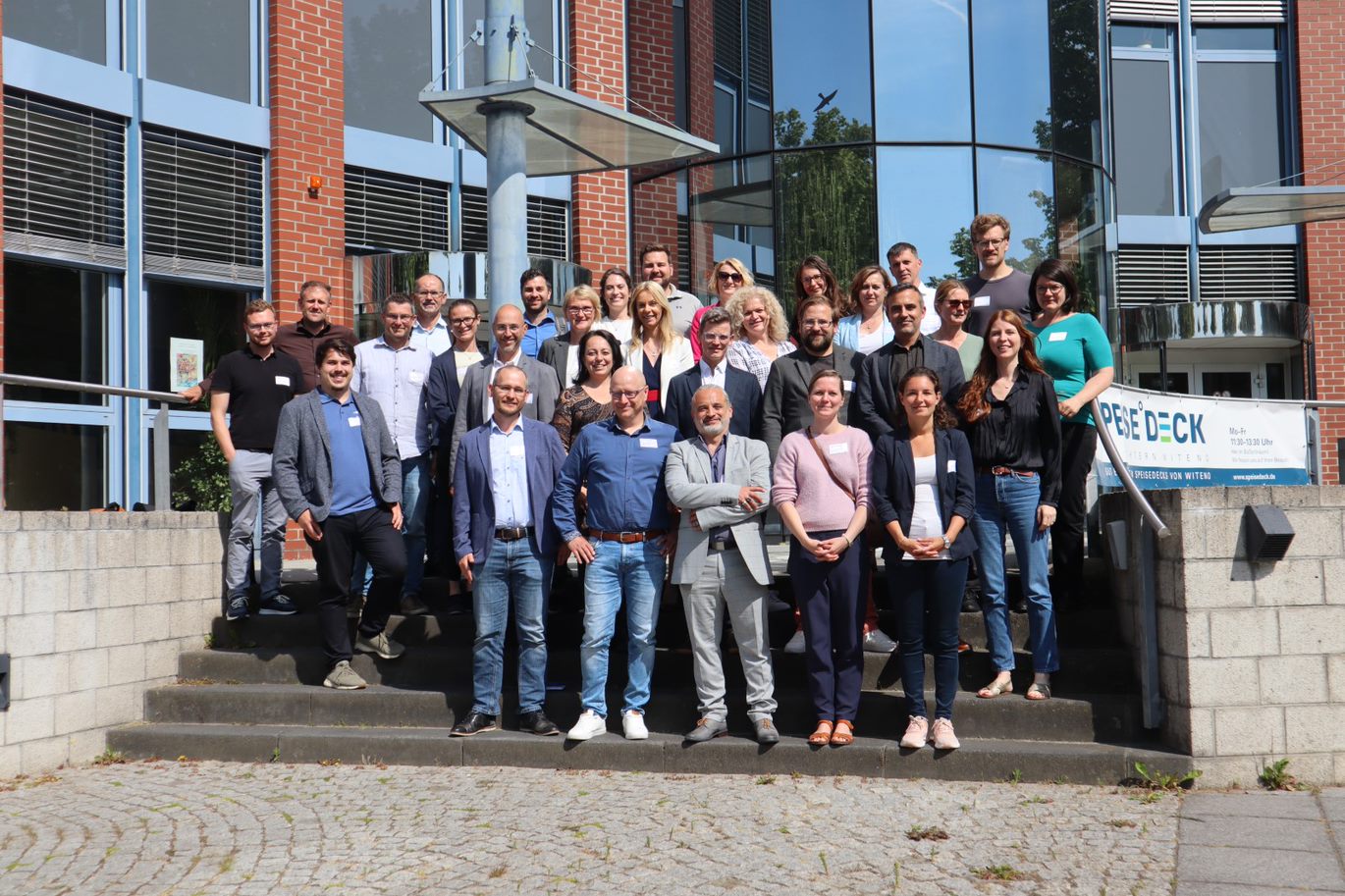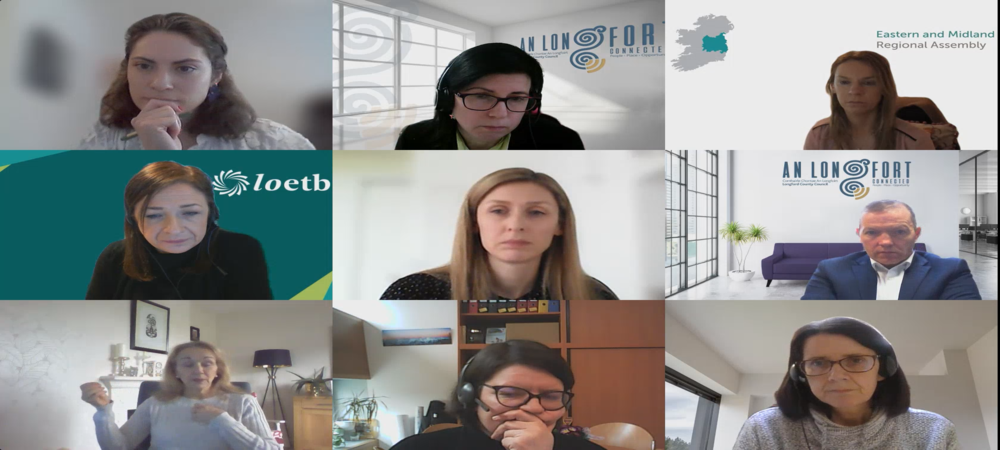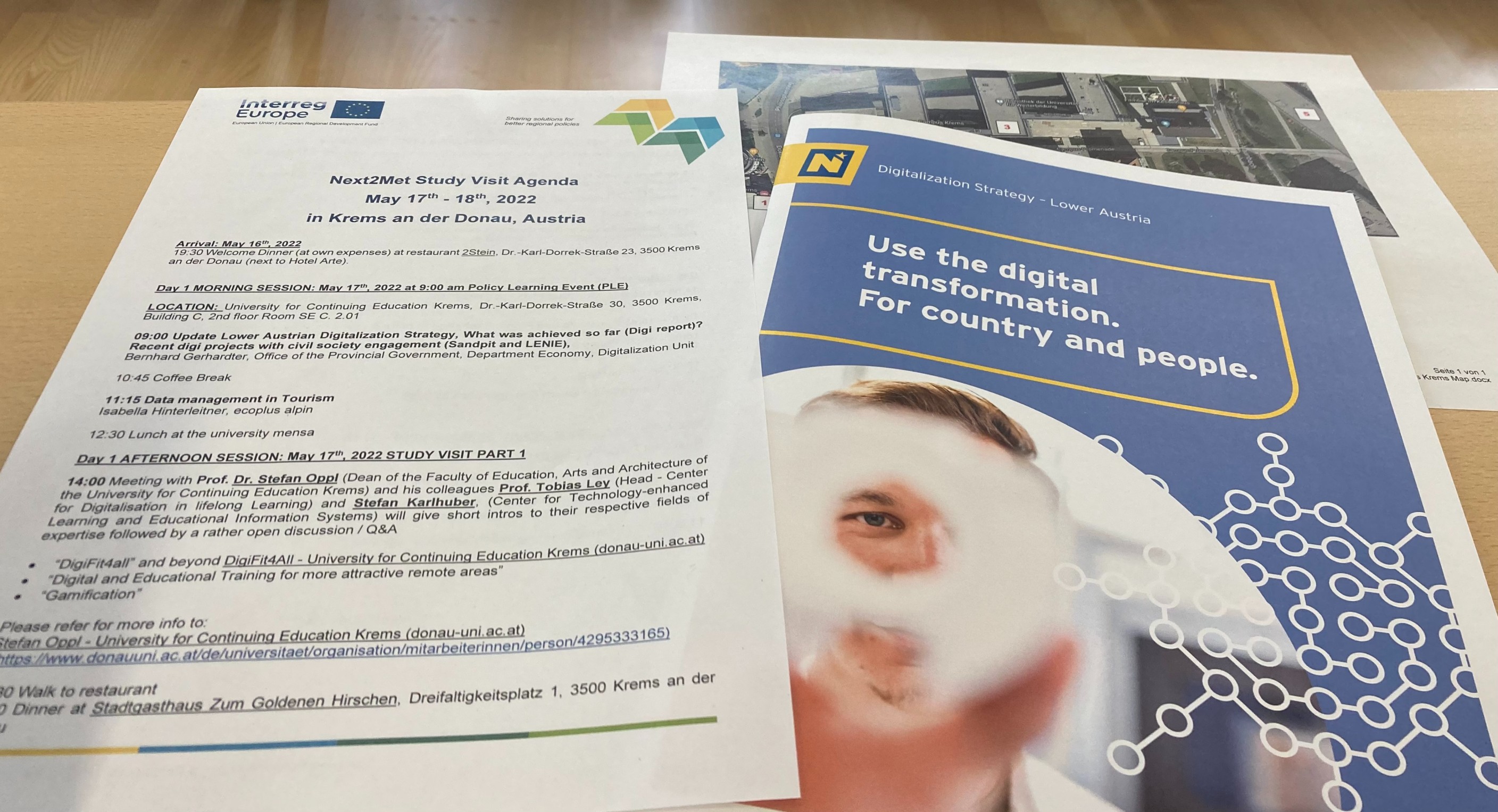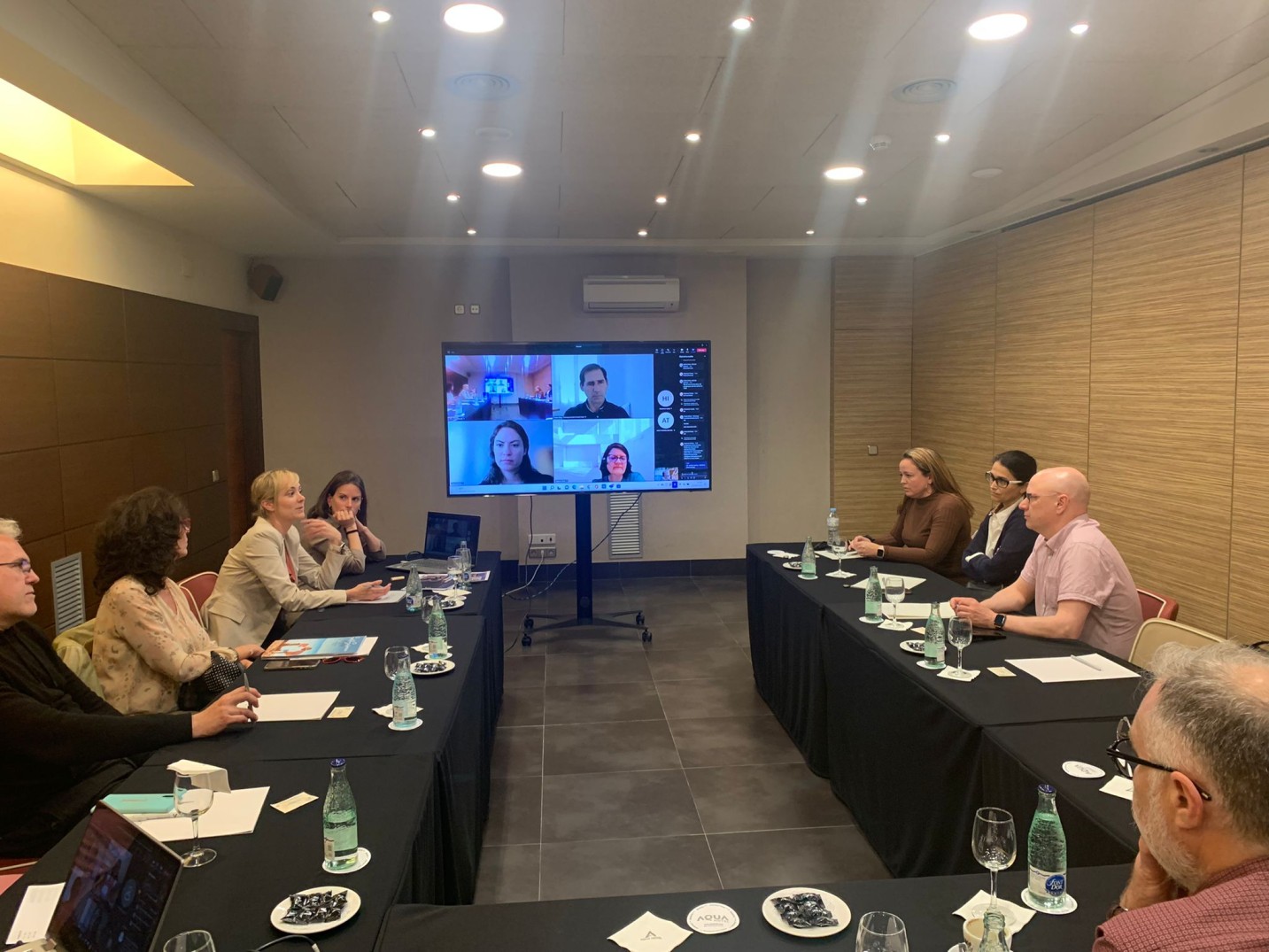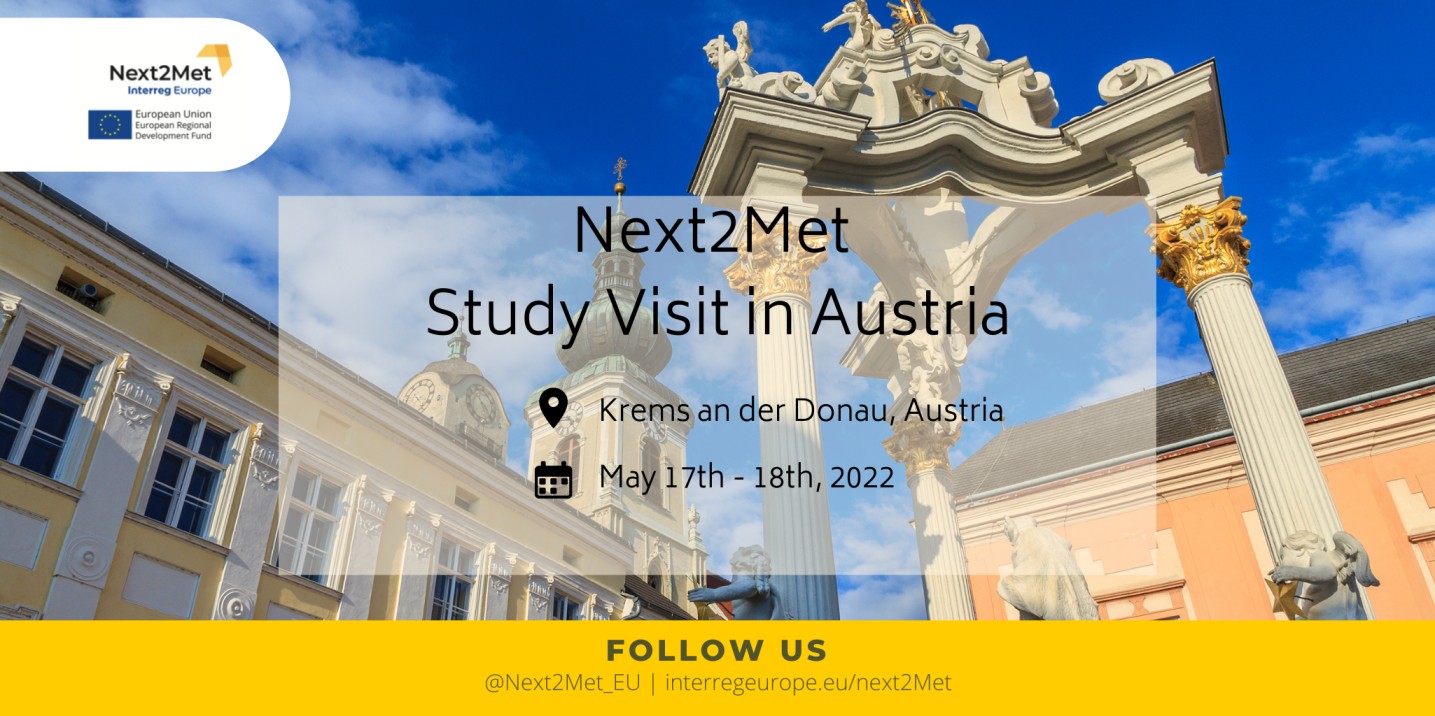It has been a pleasure to welcome ecoplus, the Business Agency of Lower Austria to the  Next2Met project! ecoplus provides a broad spectrum of services to businesses in the region and will help the partnership to improve digitalisation policies of 'next to met' territories.
Next2Met project! ecoplus provides a broad spectrum of services to businesses in the region and will help the partnership to improve digitalisation policies of 'next to met' territories.

Discover more in our interview with Simone Hagenauer, Project Manager Clusters at ecoplus.
What is ecoplus and what are the activities and services it provides?
The Lower Austrian Business Agency ecoplus is a privately run agency, 100% owned by the region of Lower Austria, providing a broad spectrum of services to business in the region.
ecoplus advises and offers support in all matters regarding business settlement and expansion, regional support and internationalisation, intercompany cooperation and sector-specific networks. It enables better access to education and R&D facilities; connects business and politics, education and research, companies and public administration, investors, and international projects.
Amongst others, ecoplus implements 3 important regional innovation programmes at the core of the regional innovation and smart specialisation strategy on behalf of the Regional Government: the Lower Austrian Cluster Programme, Technopole Programme and the flagship project of the region’s Digitalisation Strategy called “House of Digitalisation”.
Why did you decide to join Next2Met?
At a European Conference in Helsinki in 2017, I presented what proximity to the capital Vienna means for Lower Austrian innovation policy and how we try to promote specialisation in technology and market niches with the help of clusters and technopoles. In the break, I met a colleague from the Region Päijät-Häme and we found out that the region has similar challenges due to its proximity to Helsinki. That was when the idea for the Next2Met project was born.
ecoplus already benefitted a lot from interregional cooperation supported by INTERREG Europe, e.g. in the projects CLUSTERIX 2.0 and INNO Industry both focusing on cluster policies. We are looking forward to making use of the synergies and sharing our experience with Next2Met partners.
What are the main assets and challenges of your region?
The region Lower Austria is located around the Austrian capital Vienna. Its economic landscape is diverse, with very well performing areas around the capital (bacon belt) and lagging rural peripheral areas.
From an innovation policy perspective, the proximity to the capital has advantages, e.g. an international airport and other logistics assets, but also disadvantages or challenges, such as depopulation in rural areas due to (especially well-educated) people moving to the capital to find better jobs. It requires cooperation with the capital city as well as the development of an own USP.
The Lower Austrian government provides support for R&D development in specific technology niches at four technopoles in the region. It supports clusters aiming at innovation in specific areas with added value for the regional economy. The region also supports companies in digital transformation. The flagship project of the region’s Digitalisation Strategy “House of Digitalisation” connects all relevant research and education providers and all business support organisations and provides SMEs with information on good practice, available training and events, potential partners, funding, etc. as well as access to know-how and infrastructure to test digital solutions.
How do you see digitalisation and why is it essential for next2met areas according to you?
The Lower Austrian Digitalisation Strategy launched in January 2018 aims at a “Digital transformation for the benefit of the region and its inhabitants”. That means it has a holistic approach addressing not only businesses and the public sector but people in the first place. It covers skills (digital fitness), expansion and improvement of necessary infrastructure (digital infrastructure) and promotion of RDI (digital solutions). It should increase attractiveness by creating and securing jobs, improving the quality of life in the region and explicitly strengthening rural areas.
What is your definition of “soft digitalisation”?
Digital technologies are changing our lives. We have never experienced this as radically as in 2020. In my personal understanding, soft digitalisation means a change of mindset: not just applying digital technologies in astonishment and stumbling, but using them in anticipation to solve problems.
